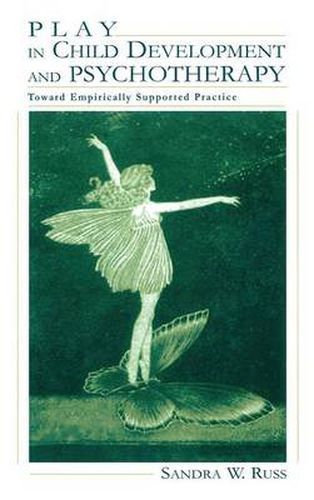Readings Newsletter
Become a Readings Member to make your shopping experience even easier.
Sign in or sign up for free!
You’re not far away from qualifying for FREE standard shipping within Australia
You’ve qualified for FREE standard shipping within Australia
The cart is loading…






Child psychotherapy is in a state of transition. On the one hand, pretend play is a major tool of therapists who work with children. On the other, a mounting chorus of critics claims that play therapy lacks demonstrated treatment efficacy. These complaints are not invalid. Clinical research has only begun. Extensive studies by developmental researchers have, however, strongly supported the importance of play for children. We are accumulating much knowledge about the ways in which play is involved in the development of cognitive, affective and personality processes that are crucial for adaptive functioning. However, there has been a yawning gap between research findings and useful suggestions for practitioners. Play in Child Development and Psychotherapy represents a major effort to bridge the gap and place play therapy on a firmer empirical foundation. Sandra Russ applies our sophisticated contemporary understanding of the role of play in child development to the work of mental health professionals who are trying to design intervention and prevention programmes that can be empirically evaluated. Never losing sight of the complex problems that face child therapists, she integrates clinical and developmental research and theory into a comprehensive, up-to-date review of current approaches to conceptualizing play and to doing both therapeutic play work with children and the assessment that necessarily precedes and accompanies it. The book includes a presentation of Russ’s recently revised Affect in Play Scale and, in an appendix, a complete manual for it.
$9.00 standard shipping within Australia
FREE standard shipping within Australia for orders over $100.00
Express & International shipping calculated at checkout
Child psychotherapy is in a state of transition. On the one hand, pretend play is a major tool of therapists who work with children. On the other, a mounting chorus of critics claims that play therapy lacks demonstrated treatment efficacy. These complaints are not invalid. Clinical research has only begun. Extensive studies by developmental researchers have, however, strongly supported the importance of play for children. We are accumulating much knowledge about the ways in which play is involved in the development of cognitive, affective and personality processes that are crucial for adaptive functioning. However, there has been a yawning gap between research findings and useful suggestions for practitioners. Play in Child Development and Psychotherapy represents a major effort to bridge the gap and place play therapy on a firmer empirical foundation. Sandra Russ applies our sophisticated contemporary understanding of the role of play in child development to the work of mental health professionals who are trying to design intervention and prevention programmes that can be empirically evaluated. Never losing sight of the complex problems that face child therapists, she integrates clinical and developmental research and theory into a comprehensive, up-to-date review of current approaches to conceptualizing play and to doing both therapeutic play work with children and the assessment that necessarily precedes and accompanies it. The book includes a presentation of Russ’s recently revised Affect in Play Scale and, in an appendix, a complete manual for it.